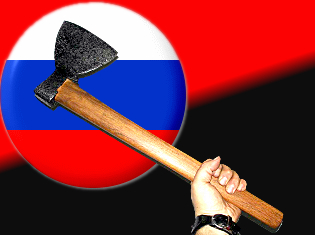PokerStars, Titan Poker, Party Poker, William Hill, Ladbrokes, and SportingBet. These are only a few of the 50-plus gambling-related websites that Russia has recently added to its naughty list, and seeing how the Motherland has been hogging the headlines these days for one reason or another, this development would likely get thrown aside as a blip in the bigger scheme of all the societal and political distress in that part of the world.
 But it is big news to us, and this fresh batch of blacklisted sites that were put on the shit pile last March 21 is a telling indication of Russia’s distaste for online gambling. Numerous reports have indicated that the prosecutor’s office recently requested that a list of sites be blocked (the list is here, in case you’re interested to peruse), putting the onus on Internet service providers to do the dirty work of blocking gambling sites that are supposedly offering illegal online games in Russia. Hmm…funny how Russia has come to interpret the word “illegal” these days, right?
But it is big news to us, and this fresh batch of blacklisted sites that were put on the shit pile last March 21 is a telling indication of Russia’s distaste for online gambling. Numerous reports have indicated that the prosecutor’s office recently requested that a list of sites be blocked (the list is here, in case you’re interested to peruse), putting the onus on Internet service providers to do the dirty work of blocking gambling sites that are supposedly offering illegal online games in Russia. Hmm…funny how Russia has come to interpret the word “illegal” these days, right?
Looking to provide as much clarification on the issue as he is allowed to divulge, Maxim Ksenzov, deputy head of Russia’s federal telecommunications watchdog Roskomnadzor, took to Twitter to respond to numerous media questions regarding the uptick in blocked websites. Without elaborating, Ksenzov remarked that the “request came straight from the prosecutor(s) office” and that the authority was from a decree back in June 2013, of which no specific details were provided. Sounds like keeping tight-lipped on true intentions has become quite the thing in Russia these days.
You can even point to the country’s newfound hobby of blocking websites as of late, and we’re not just talking about the aforementioned blacklist of online gambling sites. While we do acquiesce that the crisis in Ukraine is a far more serious issue than these blacklisted online gambling site and that the two issues have really nothing in common with another, it does point to the country’s growing paranoia to censor just about anything on the Internet it deems as contrary to what the people over at the Kremlin are thinking.
